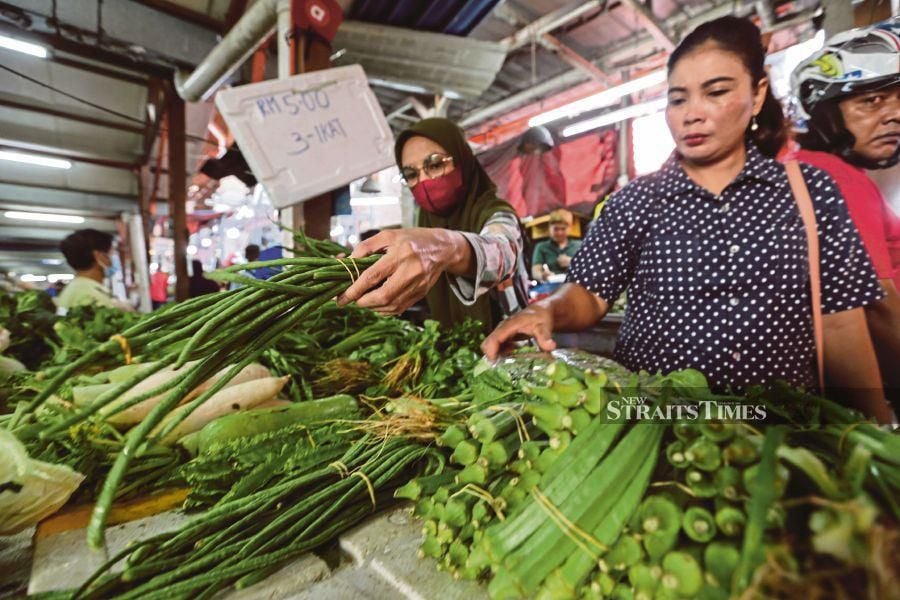
KUALA LUMPUR: The country's continuous heavy rain and wet weather have contributed to the increase in vegetable prices, said farmers' associations and consumer rights groups.
Kuala Langat Area Farmers Organisation (PPK) Dr Abdul Razak Khasbulla said the change in climate and uncertain weather had tremendously affected farmers' vegetable production.
"The change in weather had led to the reduction of production. However, the demand keeps increasing, leading to the increase in price," he said when contacted.
He said natural disasters caused by climate change, such as floods had highly impacted farmers' production costs due to farm services and maintenance.
He said this included the input cost such as seed, fertiliser and agrochemical items used to help in production, which had affected farmers' profit and working capital.
"It would take at least around six months for a farm to come to a full cycle and produce vegetables when it is hit by the flood.
"This is also the reason why many farmers gave up and we have to outsource the production in turn."
Previously, New Straits Times reported that prices of several vegetables had skyrocketed by more than 160 per cent.
Based on a list provided by the Consumers Association of Penang (CAP), the price of lady's fingers had gone up from RM6 per kilogram last month to RM16 this month.
Similarly, long beans had doubled in price from RM6 per kg to RM12, tomatoes from RM4.50 per kg to RM10 and eggplants from RM7 per kg to RM12.
At the same time, the price comparison done by NST today on a local market in Kuala Lumpur and Domestic Trade and Consumer Affairs Ministry's price-checker website also revealed that several prices of vegetables had nearly doubled from RM12 per kg to RM22 this month.
This included red chilli prices which had gone up from RM12 per kg to RM22, tomatoes from RM6 to RM9.80 and eggplants from RM11 to RM19.67.
However, Federal Agricultural Marketing Authority (Fama) had said the prices of vegetables were likely to see a drop within the next month or two following numerous efforts taken by the agency.
Its chairman Datuk Mohd Fasiah Mohd Fakeh said while vegetable prices had seen an increase in recent months owing to several factors, including the floods, they were expected to stabilise soon.
He said Fama was working with the Agriculture and Food Industries Ministry on the matter.
Following this, Federation of Malaysian Consumers Associations (Fomca) secretary-general Datuk Dr Paul Selvaraj said it was important for Malaysia to stabilise its food production to reduce the cost of essential food such as vegetables.
He added that the government's underinvestment in agriculture had also contributed to the increase in vegetable prices.
"Only 12 per cent of our agricultural land is used for food production, while the remaining is used for cash crops. Hence, this is why our food production is not sufficient and we need to import.
"(And) when there is an issue with the source country, whether it is a conflict or climate change, the production will go down and supply will be limited.
"Therefore, we need to increase our food production so our self-sufficiency rate (also) increases," he said.
He added that apart from climate change, monopoly practices and price distortion along the supply chain were among the reasons for the increase in vegetable prices.
"This is why in terms of the policy, we need to focus on food production and a free market supply chain to stabilise the prices and reduce food import.
"Hence, we need to look at agriculture as a critical part of our community well-being because food is essential and this is where policy, regulation and removal of all kinds of barriers are crucial to ensure good food production."
